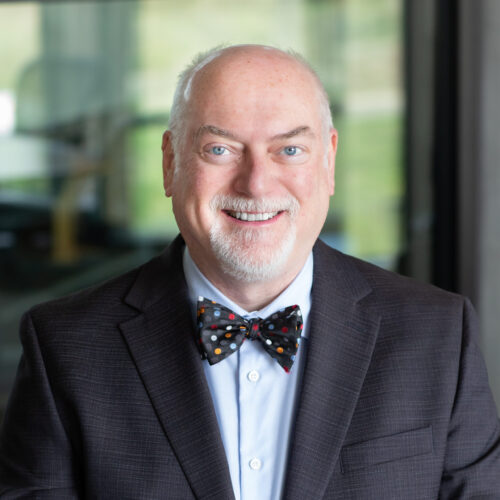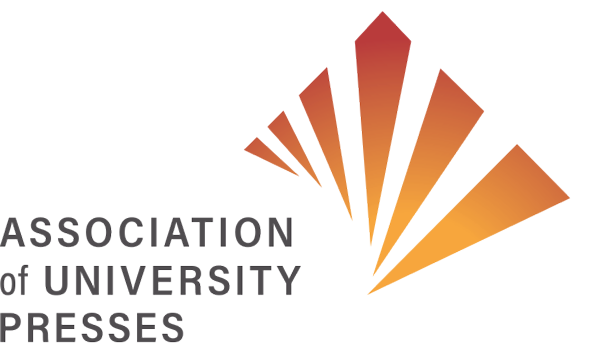Inaugural Statement
Director, University of Wisconsin Press
June 2025

It is an honor and a privilege to be addressing you as the seventy-fifth president of the Association of University Presses. I am writing from Madison, Wisconsin, site of the 1970 Annual Meeting (at which ashtrays, rather than tote bags, were the preferred swag), on an isthmus between Lakes Mendota and Monona, an area that the Ho-Chunk people have called Dejope since time immemorial.
I am the second director of the University of Wisconsin Press to serve as president of the Association. Thompson Webb Jr. served in the same capacity 52 years ago. Although that seems like the distant past, he closed his inaugural address with the following assertion that seemingly could have been ripped from today’s headlines: “Copyright and government money are the significant issues that I foresee as dominating all others in the coming year.”
Over the past few months, I have found myself drawn repeatedly to the archive of past presidential addresses—both inaugural and valedictory—on the Association’s website. There are unfortunate lacunae here. It would have been fascinating, for example, to read what our first president, Chicago’s Donald Bean, had to say in 1938—more than 15 years after he had been part of the initial conversations and correspondence that ultimately led to the creation of the Association.
What does emerge, clearly and unequivocally, is a remarkable consistency in the belief in the value of our work, the search for creative solutions to external challenges, and the loyalty and dedication to the work among members that permeates and echoes through the years. One passage from University of Washington Press director Don Ellegood’s speech in 1981—a year almost halfway between our founding and today—seems to me truly timeless: “Among the press directors, the old guard have nearly all retired. Throughout our ranks there’s been a healthy infusion of new faces from trade, text, and commercial publishing.”
The first annual meeting of the Association I ever attended was in 1995, 30 years ago this summer, in Nashville, Tennessee. I still distinctly remember being embraced by feelings of excitement, enthusiasm, welcome, and camaraderie. From that point forward I have never lost the sense that here I am among my people, that here is where I belong. In those days, there was both an opening and a closing banquet, and, following the latter, a dance. It was all a bit overwhelming for a relatively new editorial assistant, but I dutifully trooped down to the venue and awkwardly participated. A year or so later I learned that a photo of the event, taken from the balcony, in which I can be clearly seen, appeared on the cover of a book of poetry published by the University of New Mexico Press—presumably not a risk at a virtual meeting.
By long tradition, every incoming president is expected to establish and announce their priorities for the Association during their inaugural address. Last summer, Anthony Cond, our first president from a member press outside of North America, established two priorities: (1) to fully reflect on the opportunity of being a global organization and (2) to engage more fully with our core external constituencies—especially librarians, booksellers, and scholars in the disciplines in which we publish. It has been a master class in leadership to observe him closely over the past year as he has delivered, time and again, on these ideals and inspired all of us around him—including Board members and committee chairs—to do the same.
Two years ago, Jane Bunker emphasized collaboration, collegiality, and community-building and helped establish the first in-person Directors Summit, to take place in years when the Annual Meeting is held virtually. This was a fantastic event focused on identifying solutions to meet our common challenges. I am very much looking forward to returning to scenic Rosemont, Illinois, this October for the second iteration of this event.
Three years ago, Charles Watkinson led with seemingly inexhaustible joy and energy as he guided the Board through a massive refresh of the Association’s strategic plan and oversaw our return to an in-person Annual Meeting for the first time in two years. Lisa Bayer and Niko Pfund guided us through the pandemic and all the ways that seismic event reshaped our lives, the ways we communicate, and the places we work.
I could continue reaching back, because one of our strengths as an organization is the smooth transfer of leadership responsibilities, the “yes, and” building of new structures, systems, and procedures on top of the strong foundations established by those who have come before. But I will stop there for now, seeing that the previous once-in-a-lifetime-event that led to upheaval of societal norms and the present one we find ourselves in today make good bookends. The throughline that jumps out at me is the realization that it is not primarily what we do that matters most but how we do it—specifically the myriad ways we recognize, and empower, and mentor, and buildup, and learn from one another in the process of publishing books and journals, grappling with AI and OA, seeking funding, and cutting costs.
Through numerous webinars, hangouts, panel sessions, retreats, and conversations over the past few years, I have learned an incredible amount about the challenges faced by individuals who do not always fit neatly into categories, as well as how blowing up those categories can benefit us all. My charge for the coming year is not just that we work together to become the best publishers possible but that we aim higher—to be the best people possible. Beyond brainstorming ideas and sharing solutions, let us strive to lift up one another.
Five years ago—only three months into the global lockdown and mere weeks following the murder of George Floyd—Niko Pfund delivered the first AUPresses’ presidential address via Zoom. Wielding the technology like someone born to it, he powerfully highlighted a portion of the Association’s Statement on Equity and Anti-Racism that is as significant today as it was then: “Meaningful change requires that we respect lived experience as a form of knowledge, along with professional and academic expertise.” He encouraged us to internalize this truth, not just acknowledge it. More recently, the Association, following a vote at the spring 2025 Board of Directors meeting, reaffirmed its commitment to the principles and mission of the Coalition for Diversity and Inclusion in Scholarly Communications (C4DISC). In doing so, it acknowledged that language and expression are currently constrained for many member press institutions and individuals, with words such as “equity,” “inclusion,” and many others being miscast, even—in some cases—made illegal to use.
In recent months, Executive Director Peter Berkery as well as the rest of the Central Office staff—Alexis Fagan, Kate Kolendo, Brenna McLaughlin, Kim Miller, McKenzi Thi Murphy, Trevor Nau, and Annette Windhorn—have been at the center of a whirlwind of activity. While still maintaining the usual high standards and fast pace of the daily work, they have drafted and issued numerous advocacy statements at a blistering pace: Responding to the Current Political Moment in the United States, Denouncing Federal Censorship of American History, Submitting Responses to Consultations on Copyright and AI, Supporting an Anti-Censorship Declaration, Repudiating the Executive Order on K-12 History Education, and Decrying the Executive Order on Gender. Things continue to move quickly, and this list may be incomplete by the time you read it. Representing and manifesting our collective values, the Association speaks for us, reminding the world that truth is sometimes ugly, that honesty, integrity, and truth matter.
In The Fellowship of the Ring, when Frodo both accepts and laments his burden, he expresses a desire that many of us currently share: “I wish none of this had happened.” Gandalf responds to him, “So do all who live to see such times, but that is not for them to decide. All we have to decide is what to do with the time that is given to us. There are other forces at work in this world, Frodo, besides the will of evil.”
University presses have always been among those other forces. Ten years ago, shortly after becoming Executive Director of the Association, Peter Berkery gave a talk at the Project MUSE publishers meeting titled “The Crisis in Scholarly Publishing at 40.” It was a revelation for me. He reminded us that the conversation and hand-wringing had been going on so long we should think of “crisis” as a feature, not a bug. He pointed out that we were built to adapt, to respond, to innovate, to evolve; to find solutions to problems as they emerge; and to find better solutions as challenges persist.
When I first started out in my career, an often-heard lament was how to break even when average monograph sales had dropped below 2,000 copies. Today, we consider ourselves fortunate if a monograph sells one-tenth of that number. What changed? Well, mostly we found other (better, cheaper) ways to do the things we do. We did so by coming together, examining the problem from all angles, trying some new things, abandoning the ideas that did not work, moving forward.
Here is an example: In recent years we have launched an Open Access Committee. There have been calls for a committee or task force focused on issues related to AI. The names may be new, but the underlying concerns about emerging technologies are not. In 1977 the Committee on Business Management and Fiscal Statistics and the Committee on Information, Technology, and Production were merged into a single Committee on Systems and Technology. In 1986, the name was changed to the Computer Committee, which morphed into the Electronic Committee, which turned into the Digital Publishing Committee, which was disbanded last year after it was determined that the issues and concerns it was formed to consider had become ubiquitous and everyday parts of our lives.
Another example: the work of the Equity, Justice, Inclusion, and Belonging Committee resonates with Women in Scholarly Publishing (WiSP), founded in 1979 to raise consciousness, work on structural changes within the Association, and enhance career development. Dissolved in the early years of this century, having seen both successes and yet much left to do, many WiSP initiatives such as the Residency Program and the Compensation Survey continue to support the core goals of our community. Fingers crossed that an intern attending their first Annual Meeting this summer will, in their presidential address 30 years from now, be able to reflect on more progress and foundational projects.
In 1894 Richard Ely, a professor of economics at the University of Wisconsin, came under fire by the state education superintendent, Oliver Elwin Wells. Ely was a known liberal and pro-union; Wells protested Ely’s beliefs, teaching, and rhetoric. A committee appointed to address the charges against Ely exonerated him. A portion of that report, now widely quoted and held up as a succinct manifestation of the Wisconsin Idea, reads, “In all lines of academic investigation it is of the utmost importance that the investigator should be absolutely free to follow the indications of truth wherever they may lead. Whatever may be the limitations which trammel inquiry elsewhere we believe the great state University of Wisconsin should ever encourage that continual and fearless sifting and winnowing by which alone the truth can be found.”
I have yet to discover a more apt description of the work we do as university presses. Peer review—the bedrock definition of membership in the Association—is the means by which we aid that sifting and winnowing, to help determine when a book or journal article is ready for publication, for dissemination into the world, to take its place in the slow building of evidence, authority, and knowledge. But it may well be the other two-word phrase in this clause that proves to be our guiding principle in the present day and the immediate future: continual and fearless.
I am very excited to be your next president and look forward to all we can accomplish together in the coming year.
